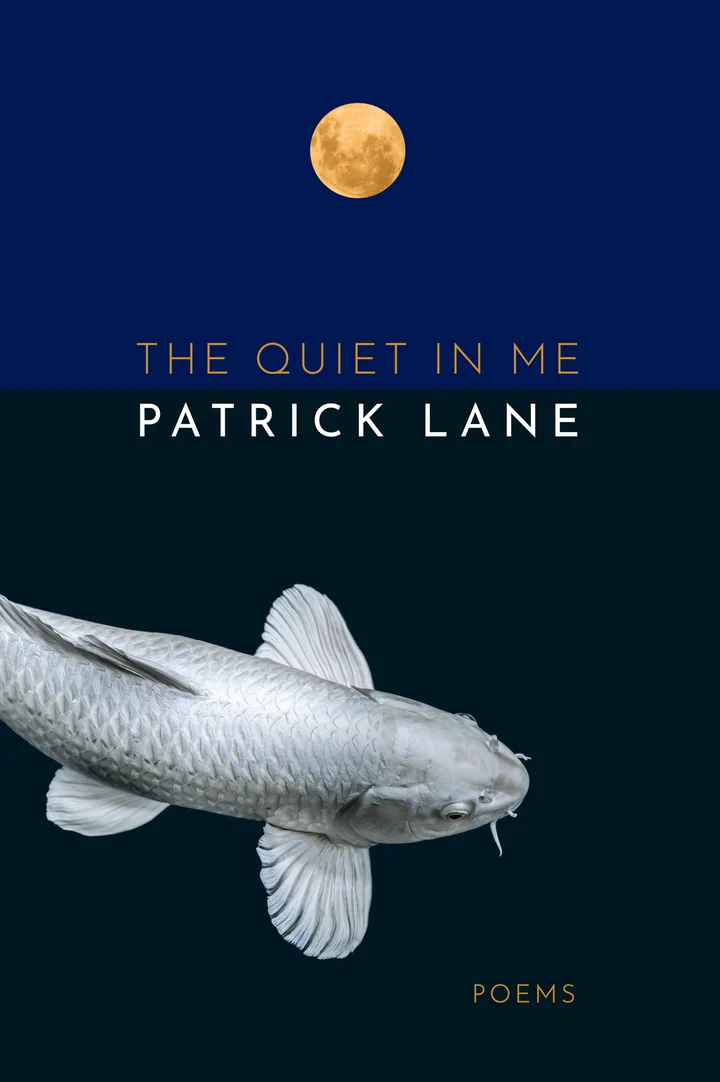The voices of Patrick Lane “fugitive, celebrant, anguished witness,” heard loud and clear in his 1978 Poems: New and Selected have not diminished. The Lane I first knew tough and tender, a maverick poet bruised by grief, softened by compassion for life in every form, elegiac for creatures and cultures lost can still be found in this posthumous collection. Through his own magic realism Lane transforms rugged specifics into parallel worlds. “Road Crew August 1956” takes us back to youthful swagger: “lounging in the machine’s shade…lank penis in his hand,/ pissing by the ditch where the grasses lie flattened and black,” aiming at a stag beetle under sun and sky. “It’s Finally Friday” loads giant firs into a boxcar, “belling” against the steel wall. The poem bristles with work, crew hijinks and masculine swagger. A grin from “Jimmy’s sister” touches ecstasy, the whole poem exploding in the exclamation, “Christ, I was young then.”

At 79, one of this country’s finest poets had arrived at stillness, the waiting presence of the silver koi on the cover of this volume, signalling the quiet within, a knowing beyond words. The poems were collected and edited after his death in 2019 by Lorna Crozier, his partner in love and art. She writes of continuing the creative conversation they always had together, timeless now, around “the stark beauty” of his final years. In the poem “Morning” (for Lorna), one awakens in a “remote present” to marvel and mystery, “the unfolding that is a woman…wing and wonder,” the “risen” and the “fallen.”
“The Breath” holds, in its spareness, the strength and delicacy of Lane’s vision: “A spring spider hangs from my finger. / I hold my breath, lay the line of silk across an apple branch. / The web she weaves will cover the whole world.” Connections flow through poems that configure the poet’s journey, beginning and ending. An inter-lacing of joy and sorrow animates “Chuck Berry and Cherry Blossoms.” In “Cobalt Blue” elephant seals, clicking beetles and the glass of Chartres cathedral colour the mind. “Enkidu Waiting” links the epic, Gilgamesh, to a single fish bubble under ice becoming “thin salvation.” Like “Otzi,” the Iceman of the fourth millennium, Lane lets go, “walking without fear into the last ice.”
The poet steps through time with creatures and peoples of the earth: “We dance without end in forgotten footprints,” the condor’s shadow on Machu Picchu, “a drop of rain on Angkor Wat” (“Snow”). Some poems are so tight, so distilled, you struggle to enter, realizing that you could have slid quietly through, between, under and around the words to Lane’s waiting world: “A blade is a sigh, a trout caught in the mountains…Listen: the trout remains in shadow as the creek passes by…The fallen leaf gets to shore by walking on water” (“Slick”).
Inevitably, the circles of life and death glide close. In “Om,” Lane has already crossed over, become “other,” moving slowly like his old cat, yet remembering naked love in a summer far away. Everywhere existence flares irresistibly, dangerously. In “Fragments,” he is also the child “who holds in his hands an open flame.” Goading death to find him in the waters of birth, Lane’s miracle of being rages at the dying of the light.
Bios
Patricia Keeney
Patricia Keeney is an award-winning poet, novelist, theatre and literary critic. The author of ten books of poetry and two novels, her writing has been widely translated. Her latest poetry volume, Orpheus in Our World (NeoPoiesis) connects ancient Greek lyrics with contemporary theatrical dialogue. Her latest novel One Man Dancing (Inanna) is a story of Africa, politics, art and personal survival set on the world stage. Her forthcoming novel, Emptiness and Angels: A story of the divine feminine combines Biblical mystery, feminist satire and spiritual quest. Keeney is a longtime professor of Literature, Humanities and Creative Writing at Toronto’s York University. Website: wapitiwords.ca [updated in 2023]

